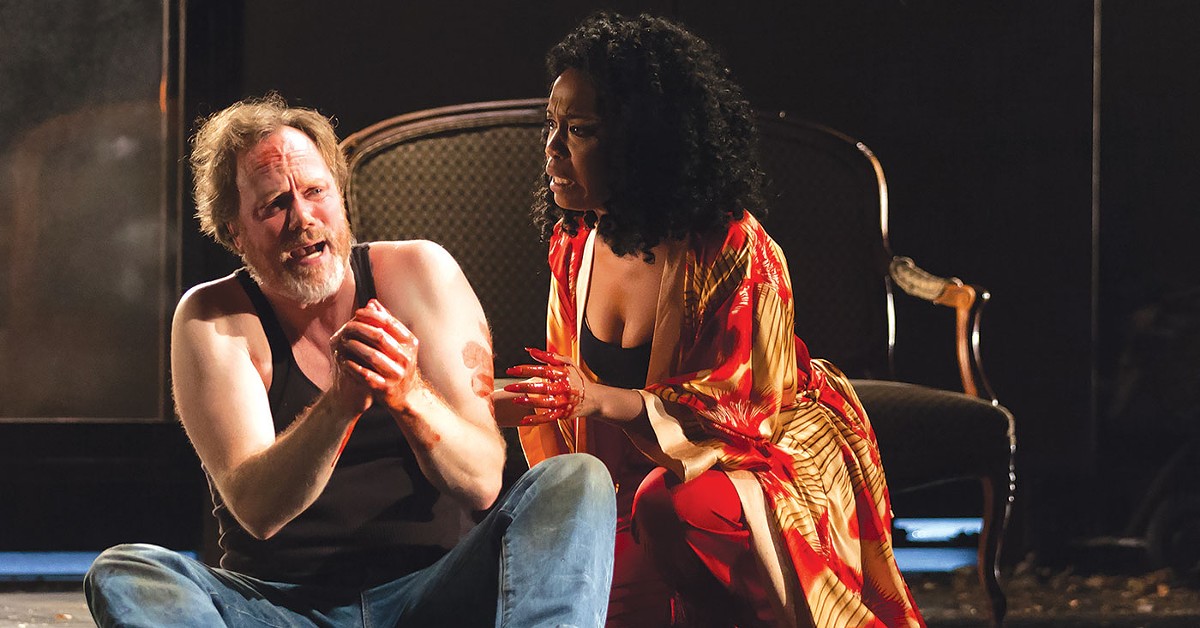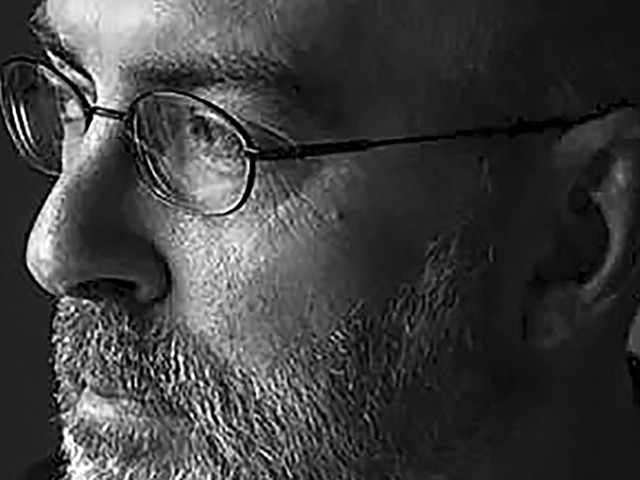In the mid-1970s, a few years after the Watergate scandal, the great English actor Ian McKellen played the title role in a Royal Shakespeare Company production of “Macbeth.”
In an interview some 30 years later, McKellen recalled that, during rehearsals, he had suggested to the production’s director, Trevor Nunn, that Richard and Pat Nixon were the Macbeths of their time.
Nunn, as McKellen recalled, would have none of it: “No, they’re the Kennedys,” said Nunn. “They’re the golden couple, the couple everyone wants to be with, whose house everyone wants to visit, including the King.”
Power couples have always been fascinating and complex — never more than in this political season (which just happens to overlap with the spooky month of October). And perhaps no power couple in the history of theater has aroused more critical scrutiny (and since the dawn of psychology, more armchair analysis) than Lord and Lady Macbeth.
For Andrew Garman and Jessica Frances Dukes, who play the couple in Actors Theatre of Louisville’s new production of “Macbeth,” under the direction of Les Waters, all the historical and intellectual detritus that shapes the “tradition” around these two characters is stuff that needs to be ignored or scraped away. In a recent interview, the pair of actors spoke in almost perfect unison about the importance of discovering their characters in the pages of the script.
And because both performers have a strong affinity for new works, they’re accustomed to bringing fresh perspectives to the characters they play. Both have a connection to the Off-Broadway Playwrights Horizons company, which is dedicated to performing new works. Garman is well-known to Louisville audiences for his work in ATL’s Humana Festival of New American Plays, where he gave outstanding performances in Charles Mee’s “The Glory of the World” and played Pastor Paul in Lucas Hnath’s “The Christians.” (In fact, Dukes and Garman first met when “The Christians” was being workshopped at the Kennedy Center in Washington, D.C.).
For an actor, said Dukes, finding your way into the role of Lady Macbeth is a challenge. “People will say she’s evil, that all she wants to is to be queen, that she doesn’t really think her husband is strong enough and that she doesn’t really love him. All these ideas are placed on the tradition of what the character is — but that’s not me. I try to come from the heart whenever I’m approaching a character, so I have to come from the place that I know, and find out why I would make these decisions.”
And what Dukes sees in herself is a champion for the people she cares about. “I see things in people,” she said. “You can show me one thing, but once I see the possibility of more in you, I’m going to try to help you get it. That’s how I connect with Lady M.” Then she recalled an argument with an old boyfriend that illustrates her attitudes. “I was pushing,” she said, “and he said, ‘You’re my girlfriend, not my agent.’”
Garman bolstered the case. “Early on, Lady Macbeth is the engine, the decision-maker, the catalyst, and then the power sort of turns as the play goes on. But there’s a wonderful quality in this relationship that accounts for its sustainability and the power of the play. There’s a part — if not a majority part — in each of us that does things for the other. In a relationship as deep as this one, where they really have only each other, the love in the relationship is illustrated by each partner’s desire to elevate the other person. Macbeth wants to put Lady Macbeth in her position of royalty. Both of them want the other to have what they deserve, and no single person has as much ambition as two.”
The thing that defines this play — and this production — Dukes and Garman agreed, is its logical plausibility and its focus on the minds of the characters. The supernatural is a force in the world of Macbeth, but this version examines not the “agents” of the supernatural (the witches), but the effects of those forces on the characters.
It’s a “bloodcurdling play about tough characters,” said Garman. “But they’re unbelievably self-aware. Macbeth is constantly questioning his perceptions — am I actually seeing a dagger? Am I experiencing these witches? Is it happening, or is it in my mind?”
So he works hard to protect himself and to make his case to himself and to the audience — a case that remains unsettled and provocative more than 400 years after Macbeth first strode the stage.






